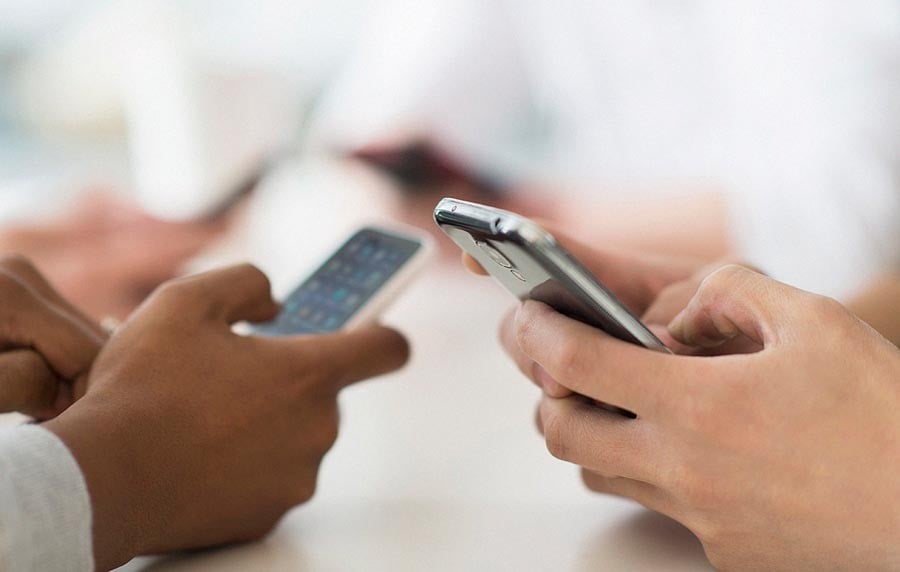
Many countries in the developing world are reluctant to allow freedom of expression through social media. Why?

A report on social media and internet freedom published by Freedom House, an organisation based in Washington DC, states that out of the 65 countries assessed in 2018, 26 have been on an overall decline since June 2017, compared with 19 that registered net improvements. The rest of the countries are static.
Among the South Asian countries, Pakistan, Nepal and Afghanistan are places where social media or internet freedom is "not free". India, Sri Lanka, Maldives and Bangladesh are in the category of "partly free" where internet freedom is shrinking for the last couple of years.
Article 19 of the Universal Declaration of Human Rights (UDHR), Article 10 of the European Convention on Human Rights, and Article 11 of the Charter of Fundamental Rights of the European Union ensure freedom of expression on the internet. However, various countries have introduced or amended laws to limit internet freedom in the last few years, like Iran, Turkey, Sri Lanka, India, Egypt, Nepal, Philippines, Venezuela, and Kenya.
China and Russia, along with some other countries, are requesting organisations to store information on the fringes, so the data can be retrieved if needed by security offices.
Adrian Shahbaz, working with Freedom House as Research Director for Technology and Democracy, states in a study, "a companionship of nations is pushing toward computerised dictatorship by adopting the Chinese model of broad control and robotised reconnaissance frameworks. Because of these patterns, worldwide web opportunity declined for the eighth sequential year in 2018."
Social media played a significant role during the Arab Spring. Protesters used social media to organise demonstrations (both pro- and anti-government), disseminate information about their activities, and raise local and global awareness of ongoing events. Uprisings occurred in states with very high levels of internet usage, such as Bahrain, with 88 percent of its population online in 2011, and in states with some of the lowest levels of internet penetration, like Yemen and Libya.
Dr. James M. Dorsey, senior fellow at the S. Rajaratnam School of International Studies, Singapore and author of China and the Middle East: Venturing into the Maelstrom says while talking to TNS on phone that public space and internet freedom is shrinking in the Arab World since the Arab Spring. "The Arab countries have put absolute control over all forms of journalism and social media freedom. We are certain in saying that there is no internet freedom left in the Arab World."
Positive impact of social media notwithstanding, "fake news" is been increasingly used by politicians across the world as an excuse to impose restrictions on social media. In recent months in Bangladesh, India, Sri Lanka, and Myanmar, false information was spread online, motivating acts of savagery against ethnic and religious minorities. Egypt, Iran, Nepal and India imprisoned citizens, commentators, journalists and activists to check false news.
In 2018, Narendra Modi’s government in India blacklisted journalists for spreading fake news. The government said that official advertisements should be denied to outlets that indulge in "unethical reporting," news published out of "bad intent" and "fake news." In addition, the Indian government has now formulated new Information Technology guidelines where social media platforms have to remove within 24 hours any unlawful content that can affect the "sovereignty and integrity of India".
Since then much has been said in India on the legal and moral legitimacy of the ban. Historian Ramchandra Guha, the Booker Prize-winning author Arundhati Roy, and seasoned Indian journalist Rajdeep Sardesai call it "brutal, authoritarian, oppressive, arbitrary, and illegal act".
Internet governance expert, Fouad Bajwa, thinks differently. While talking to TNS, he says, the phenomenon of fake news came to the fore when people started using the social media for personal or social motives, and when political parties started using the space to spread their propaganda. "That is the reason why media organisations, political parties, journalists and social media activists started campaigning against the regulations as soon as they were brought under the umbrella of internet regulations."
Bajwa thinks the concept of self-regulation is impossible especially in the developing countries. "The West is our ideal; criticism on state regulation and theories of self-regulation model are derived from the western culture and values. However, in real the freedom of expression is a rather confused concept in the West as well."
Also read: Editorial
Dr. Dorsey finds the act of officials to regulate social media interesting. "When a journalist or any key figure in the society tries to spread fake news or handles social media unethically they lose their reputation and people start ignoring them -- which is the best form of informal regulation - being practiced in developed societies."
He further says, "Social media has to use technology to regulate itself. Regulating freedom of speech or internet is not the government’s prerogative."